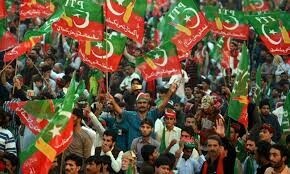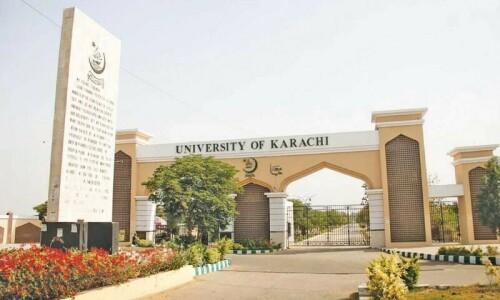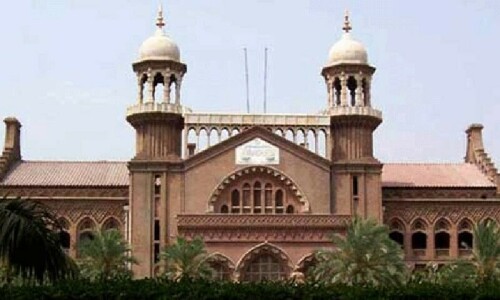SIR Jadunath Sarkar (1870-1958) is considered an authority on Mughal history, albeit not without reservations. A scholar who knew Persian quite well, Sarkar was fascinated by Khuda Bakhsh Oriental Library and its treasures of Persian, Arabic and Urdu manuscripts, some of them quite rare and incomparably important.
In his article titled ‘Khuda Bakhsh, the Indian Bodley: Life and Character’, Sarkar paid glowing tribute to Khuda Bakhsh, the pioneer of what Sarkar called India’s Bodleian Library (Khuda Bakhsh Library journal , vol.3, 1977). The Bodleian Library, the principal library at Oxford University, has been a library of legal deposits for 400 years, says library’s official website. The Bodleian Library is one of the oldest in Europe. Known to many Oxford scholars simply as ‘The Bod’, it is named after Thomas Bodley.
Just as Bodleian Library, Khuda Bakhsh Oriental Public Library, Patna, India, is a treasure trove known for its rare manuscripts and books. It has been receiving kudos from all and sundry and even Shibli No’mani, who had visited many old libraries in some Eastern countries, was quite impressed with its holdings. Shibli once remarked that Moulvi Khuda Bakhsh’s library must rank among the renowned libraries of Egypt, Arab and India.
According to Jadunath Sarkar, Khuda Bakhsh was born in Chhapra, a town in north Bihar, on August 2, 1842. Khuda Bakhsh’s father, Muhammad Bakhsh, was a lawyer at Bankipore, near Patna. Despite a modest income, he had collected about 1,500 rare Arabic and Persian manuscripts, 300 of which he had received as inheritance. In 1876, on his deathbed, Muhammad Bakhsh asked Khuda Bakhsh to enhance this treasure of manuscripts and establish a public library. Initially, Khuda Bakhsh did some odd jobs and finally having passed the required exam, he became a lawyer at Patna in 1868. In 1883 he was conferred the title of Khan Bahadur and C.I.E. in 1903, in recognition of his services.
When Jadunath Sarkar wrote that piece, the number of manuscripts had increased to about 5,000, including Urdu manuscripts, as Khuda Bakhsh strived to get manuscript from everywhere including Iran, Iraq and other Eastern countries. Library is said to have about 15,000 manuscripts and other antiquities these days.
Khuda Bakhsh was a scholar in his own right and had a command on Islamic bibliographic sources. Jadunath Sarkar was amazed at Khuda Bakhsh’s knowledge of Arab bibliographers as he explained from memory the details of Arabic bibliographies written in the first eight centuries of Islamic history, critically evaluating them as well. Keeping his promise made to his father, in 1888 Khuda Bakhsh got constructed a building for the library, named it Oriental Public Library and opened it for public in 1891, with 4,000 manuscripts. Later on, it was named Khuda Bakhsh Oriental Public Library, as Khuda Bakhsh had spent almost his entire savings and many years of his life for establishing the library. He had a sentimental attachment with the library and its treasures.
Khuda Bakhsh had a penchant for collecting rare Arabic works, especially the ones related to Quran and Hadith of Prophet Muhammad (PBUH). As narrated by Jadunath Sarkar in his article, Khuda Bakhsh once had a dream and saw that “the lane with the library was filled with a dense crowd of people. When I came out of my house they cried out, ‘The Prophet is on a visit to your library and you are not there to show him around!’ I hastened to the manuscript room and found him gone. But there were two manuscripts of ‘Hadis’ (Traditions) lying open on the table. These, the people said, had been read by the Prophet”, (page 80). Now these two manuscripts have a note attached, handwritten by Khuda Bakhsh, saying these two volumes are not to be taken out of the library, though no reason is given.
Jahangir’s Book of Fate; a signed copy of Shahanshah Nama, celebrating victories of Sultan Muhammad III, the conqueror of Constantinople; Jami’s poem Yousuf-o-Zulaika, for which Jahangir had paid one thousand gold coins, are among but a few of the library’s cherished holdings. It is simply not possible to enlist all the jewels of this treasure here. Aside from books and manuscripts, the library holds some antiques, invaluable paintings and pieces of calligraphic art, collected from different Eastern countries.
In 1969, Khuda Bakhsh Oriental Public Library was declared an institute of national importance through an act of parliament and since then it is being managed by Indian government’s department of culture, says library’s official website. Many rare manuscripts and collections of books have been donated to the library from time to time. Library’s research publications and Khuda Bakhsh Research Journal are valued by the researchers.
Khuda Bakhsh died in Patna on Aug 3, 1908.
Published in Dawn, July 31st, 2023















































Dear visitor, the comments section is undergoing an overhaul and will return soon.